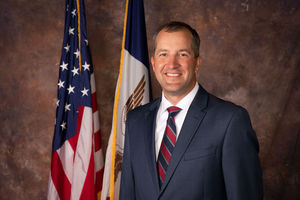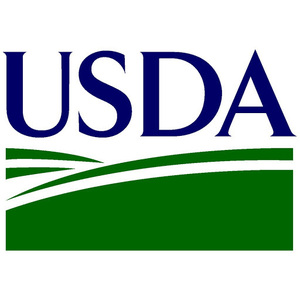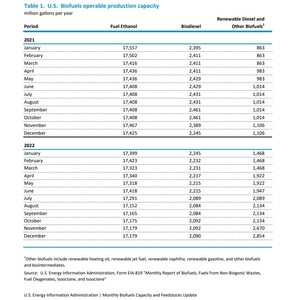Ag commissioners advocate for higher biomass-based diesel RVOs
Energy Disrupter
ADVERTISEMENT
The agriculture commissioners of Iowa, Alabama, Georgia, Kentucky, Louisiana, Mississippi, North Carolina, North Dakota, South Carolina, Texas and West Virginia are urging the U.S. EPA to boost biomass-based diesel renewable volume obligations (RVOs) in the upcoming Renewable Fuel Standard “set” rule.
The ag commissioners, led by Iowa Secretary of Agriculture Mike Naig, on May 16 sent a letter to U.S. EPA Administrator Michael Regan stressing that the agency’s proposed RFS rule fails to consider key investments that farmers and biofuel producers have made in recent years and ignores the historic level of biofuel and feedstock processing capacity expansion that is planned and underway, restricting the opportunity for clean, homegrown biofuels to meet U.S. energy independence and carbon reduction goals.
“Specifically, we are deeply concerned with the proposed volumes in the biomass-based diesel (BBD) category of the RFS,” the ag commissioners wrote. “The EPA vastly missed the mark and did not accurately consider the market realities and conditions with these volumes in its proposed rule. Over the past few years, industry has put billions of dollars of near-term investments into the market to increase crush capacity for vegetable oils, and the U.S. is expecting to see more than five billion gallons of renewable diesel come online by 2025. Furthermore, EPA’s proposed BBD volumes are significantly lower than current production and usage levels of biodiesel and renewable diesel and, if finalized, will hurt future advancements in feedstock and biofuel production as well as reduce supply in the diesel market.
“Additionally, while the conventional biofuel levels in the proposed rule appear to be sufficient in and of themselves, we have great concern over the potential cannibalization that could occur in this category due to the woefully inadequate BBD levels,” they continued. “Higher ethanol blends such as E15 and E85 provide consumer savings at the pump and emission reductions for the air, and the RFS should be harnessed to accelerate – not hinder – the use and availability of these homegrown, lower carbon fuel choices.
“We strongly encourage the Agency in its final rule to increase the proposed volumes for BBD – along with corresponding increases to the total advanced biofuel and total renewable fuel obligation levels – to account for the significant growth in investments and production capacity in the renewable diesel and biodiesel space,” the commissioners added. “Without considering the increases in newly available feedstocks, crush capacity and biofuel production, the EPA will be hurting investments and impacting supply of critical fuels in the diesel market.”
The EPA released the proposed RFS “set” rule in December. The proposed rule included proposed RFS RVOs for 2023, 2024 and 2025. A public comment period was open through Feb. 10. The agency in mid-May delivered its final RFS “set” rule to the White House Office of Management and Budget. OMB review marks a final stage before promulgation of a rulemaking. The EPA is required to issued the final rule by June 14 under a consent decree reached as part of a legal challenge filed by Growth Energy last year related to the EPA’s failure to meet statutory RFS deadlines.
A full copy of the letter can be downloaded from the Iowa Department of Agriculture and Land Stewardship website.
















